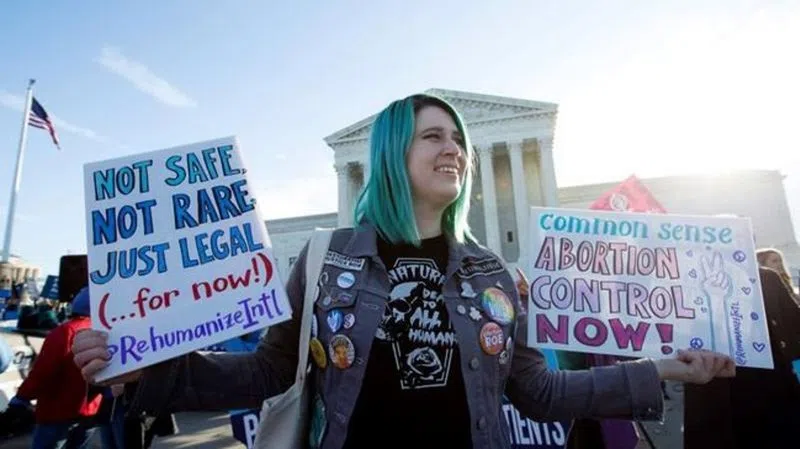
Supreme Court divided in 1st big abortion case of Trump era
WASHINGTON — The Supreme Court appeared divided in its first major abortion case of the Trump era, leaving Chief Justice John Roberts as the likely deciding vote.
Roberts did not say enough to tip his hand in an hour of spirited arguments at the high court Wednesday.
The court’s election-year look at a Louisiana dispute could reveal how willing the more conservative court is to roll back abortion rights. A decision should come by late June.
The outcome could have huge consequences at a time when several states have passed laws, being challenged in the courts, that would ban abortions after a fetal heartbeat is detected, as early as six weeks.


